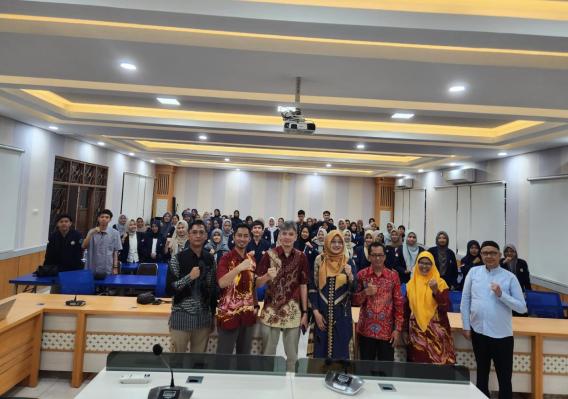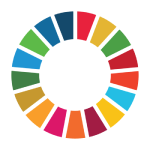Designing e-assessments for science literacy based on Education for Sustainable Development”

A training titled “Designing e-assessments for science literacy based on Education for Sustainable Development (ESD)” was conducted by FMIPA UNY. In this session, DR. Ali Mahmudi delivered a keynote presentation that formed the foundation of the activity.
In his presentation, Dr. Ali Mahmudi articulated the core concept of science literacy in the 21st century — not merely mastery of content, but the ability to apply scientific understanding in real-world, sustainable development contexts. He linked the approach to the global framework of the Sustainable Development Goals (SDGs), especially SDG 4 (Quality Education), underscoring that empowering the next generation with robust science literacy supports inclusive, innovative, and future-oriented education. The ESD-based e-assessment design further aligns with SDG 4 by advancing teacher and learner capacity to innovate, assess critically, and engage with sustainability issues.
Following his conceptual framing, the training moved into hands-on workshops where participants drafted e-assessment instruments that integrate sustainability themes (such as climate change, resource management, energy efficiency) into science literacy tasks. Guidance was offered on how to structure items that assess not just knowledge of science content, but also the ability to interpret data, reason scientifically, and propose sustainable solutions. The practical segment emphasized the use of digital platforms and collaborative design of assessment tools — aligning with broader trends in educational innovation and technology-enabled assessment.
In the reflection session, participants noted that the training deepened their appreciation of how assessment practices can reinforce sustainable development goals and suggested ongoing follow-up to embed ESD principles more fully into their pedagogy and assessment design.
Importantly, this activity was intended for the students of the Faculty of Mathematics and Natural Sciences (FMIPA) at Universitas Negeri Yogyakarta (UNY), offering them the opportunity to engage in the intersections of science literacy, e-assessment design, and sustainable development practice.






